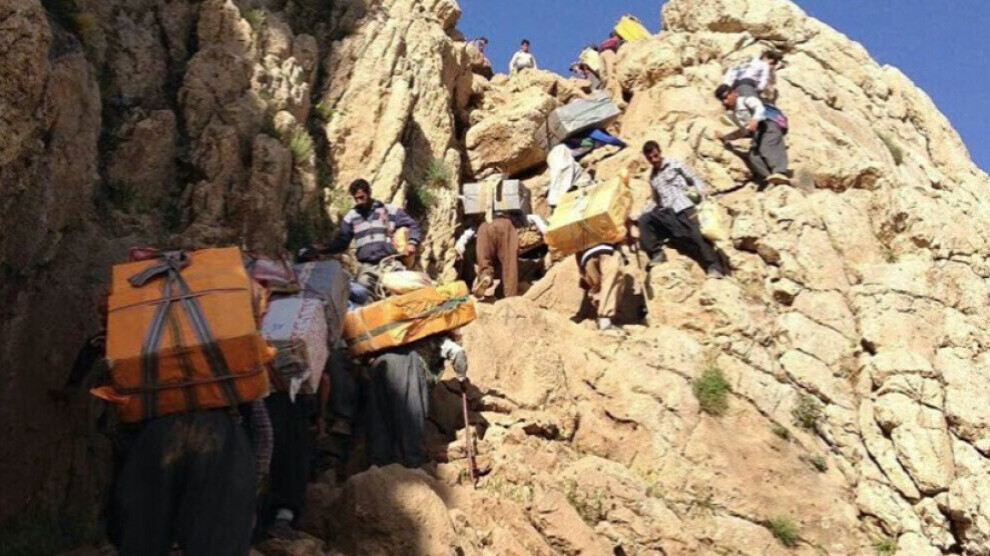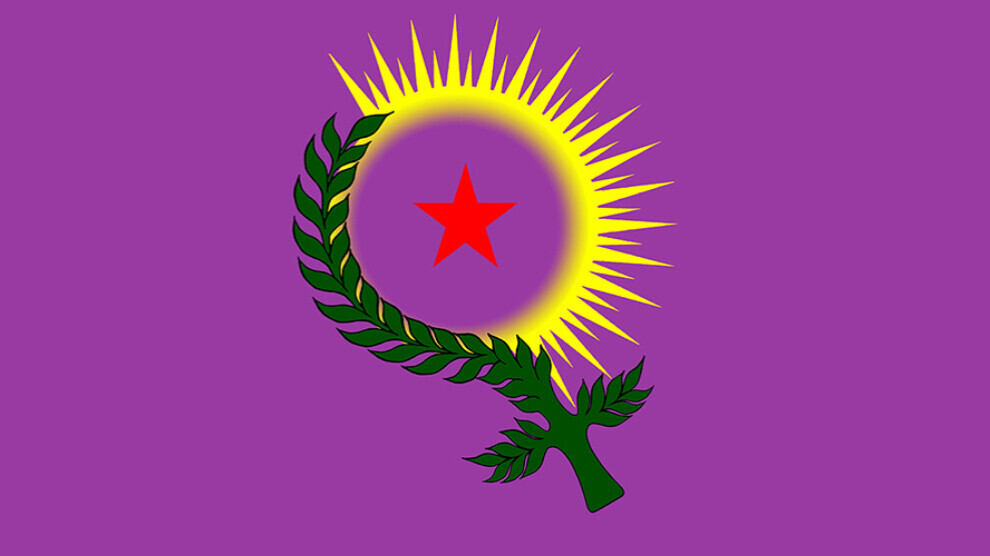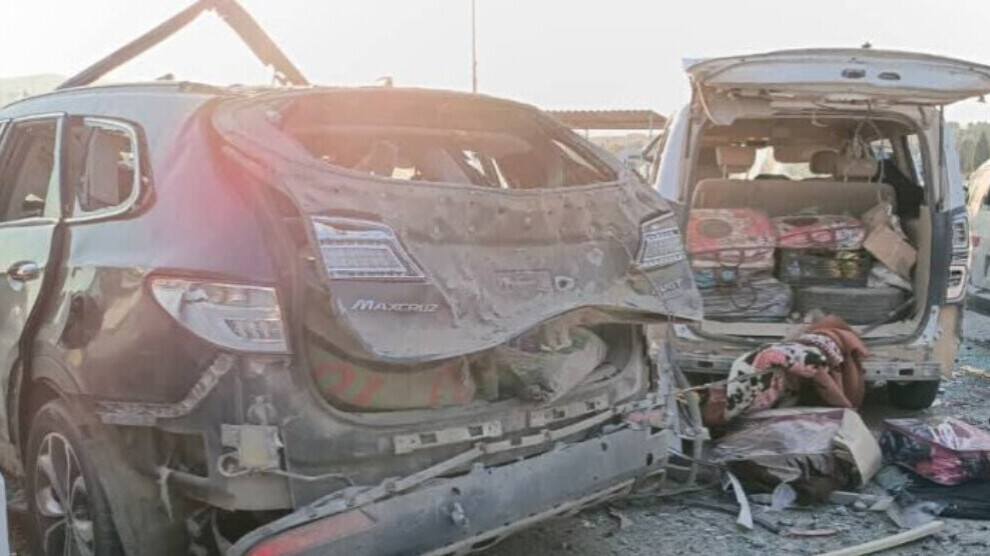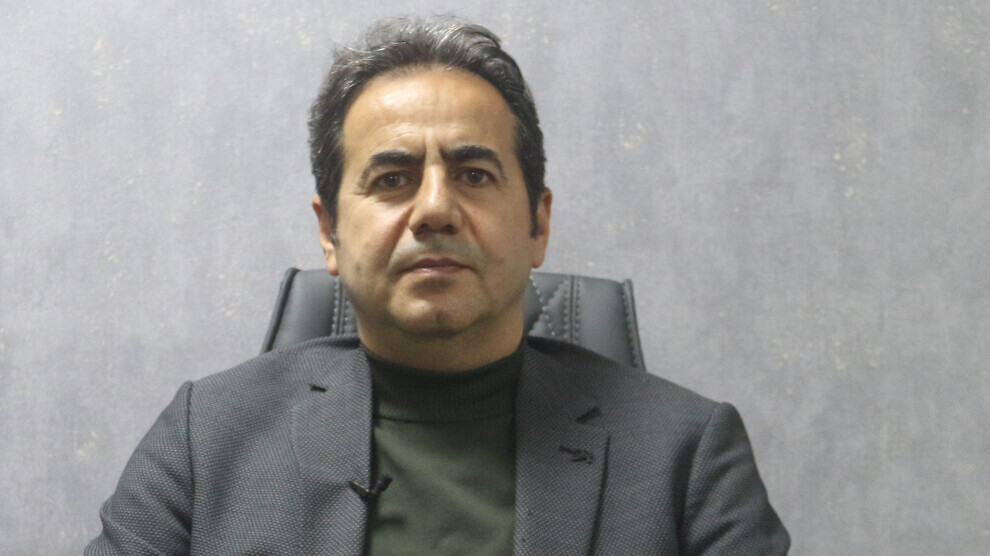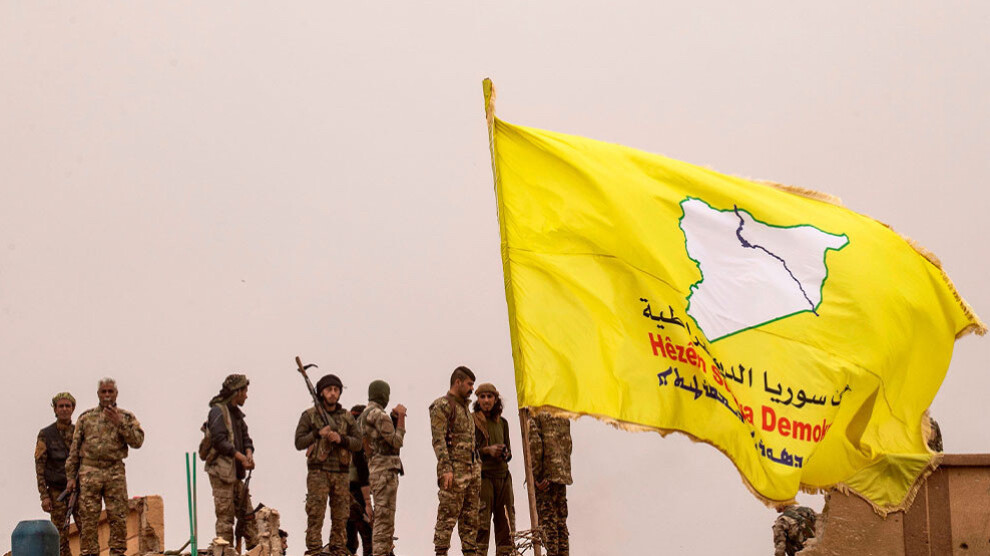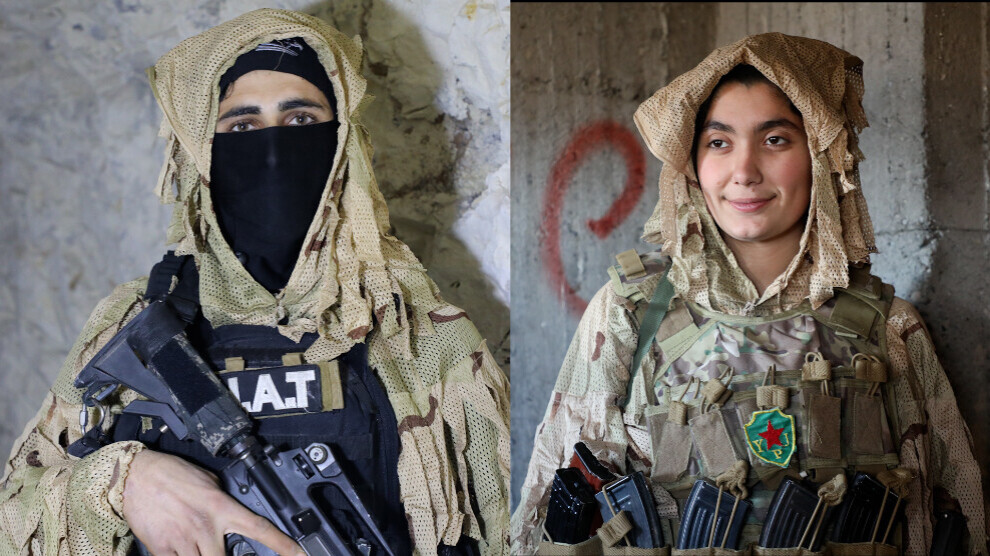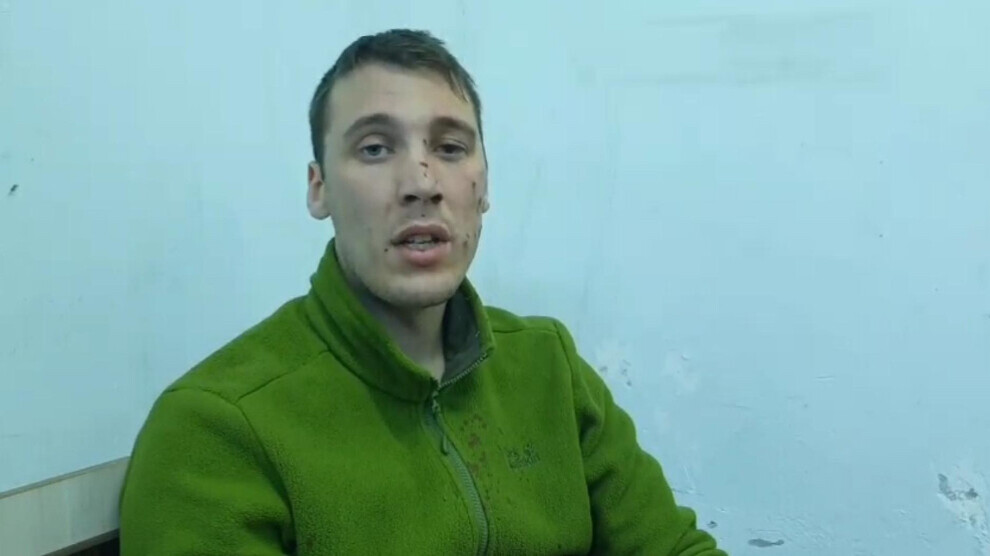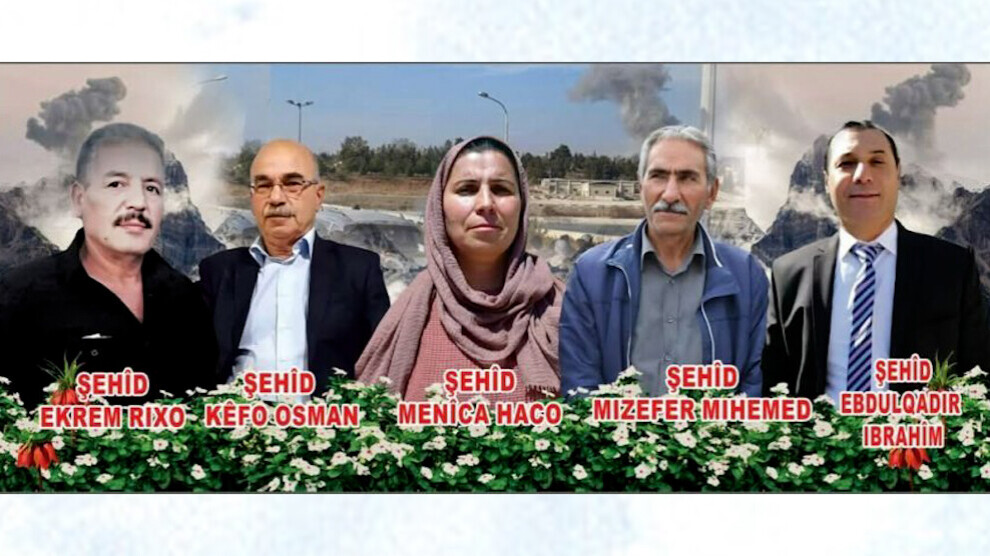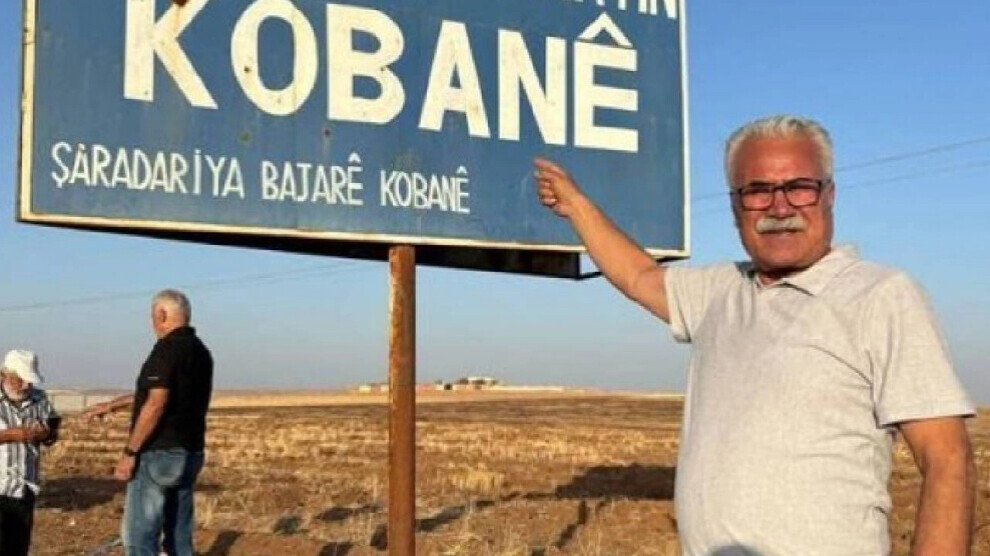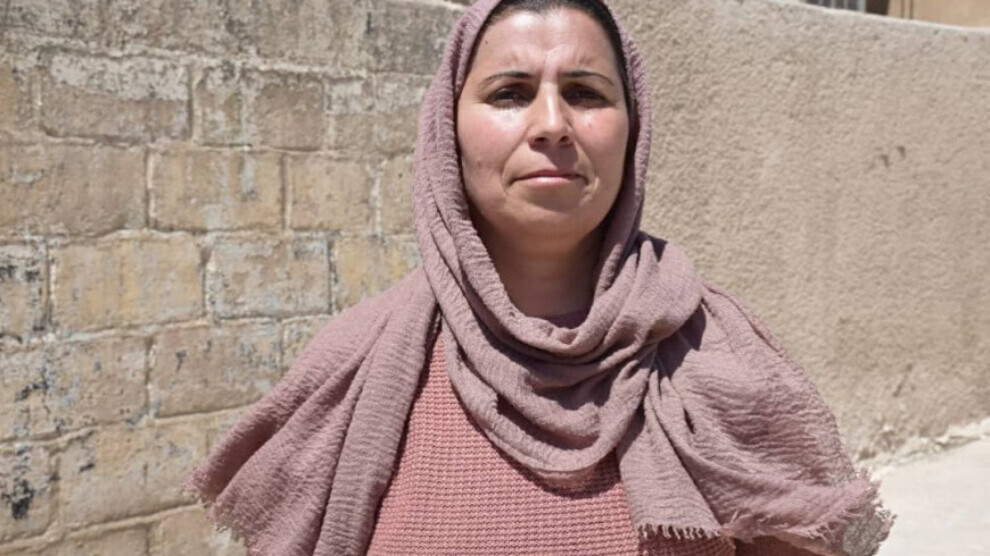KURDISH WOMEN'S RESISTANCESyrian defence minister rejects Kurdish proposal for its own military bloc


Syria's new defense minister Murhaf Abu Qasra attends an interview with Reuters in Damascus
Sun, January 19, 2025
By Maya Gebeily
DAMASCUS (Reuters) - Syria's new defence minister said on Sunday it would not be right for U.S.-backed Kurdish fighters based in the country's northeast to retain their own bloc within the broader integrated Syrian armed forces.
Speaking to Reuters at the Defence Ministry in Damascus, Murhaf Abu Qasra said the leadership of the Kurdish fighters, known as the Syrian Democratic Forces (SDF), was procrastinating in its handling of the complex issue.
The SDF, which has carved out a semi-autonomous zone through 14 years of civil war, has been in talks with the new administration in Damascus led by former rebels who toppled President Bashar al-Assad on Dec. 8.
SDF commander Mazloum Abdi has said one of their central demands is a decentralised administration, saying in an interview with Saudi Arabia's Asharq News channel last week that the SDF was open to integrating with the Defence Ministry but as "a military bloc", and without dissolving.
Abu Qasra rejected that proposal on Sunday.
"We say that they would enter the Defence Ministry within the hierarchy of the Defence Ministry, and be distributed in a military way - we have no issue there," said Abu Qasra, who was appointed defence minister on Dec. 21.
"But for them to remain a military bloc within the Defence Ministry, such a bloc within a big institution is not right."
One of the minister's priorities since taking office has been integrating Syria's myriad anti-Assad factions into a unified command structure.
But doing so with the SDF has proved challenging. The U.S. considers the group a key ally against Islamic State militants, but neighbouring Turkey regards it as a national security threat.
Abu Qasra said he had met the SDF's leaders but accused them of "procrastinating" in talks over their integration, and said incorporating them in the Defence Ministry like other ex-rebel factions was "a right of the Syrian state".
Abu Qasra was appointed to the transitional government about two weeks after Hayat Tahrir al-Sham, the Islamist group to which he belongs, led the offensive that ousted Assad.
He said he hoped to finish the integration process, including appointing some senior military figures, by March 1, when the transitional government's time in power is set to end.
Asked how he responded to criticism that a transitional council should not make such appointments or carry out such sweeping changes of the military infrastructure, he said "security issues" had prompted the new state to prioritise the matter.
"We are in a race against time and every day makes a difference," he said.
The new administration was also criticised over its decision to give some foreigners, including Egyptians and Jordanians, ranks in the new military.
Abu Qasra acknowledged the decision had created a firestorm but said he was not aware of any requests to extradite any of the foreign fighters.
(Reporting by Maya Gebeily; Editing by Mark Heinrich and Helen Popper)
People from Afrin urge Turkey to “get out of our land” on the seventh anniversary of occupation
On the seventh anniversary of the Turkish occupation of Afrin, the Turkish state was urged to leave Afrin where grave crimes have been committed and 75 percent of the local population has been displaced.
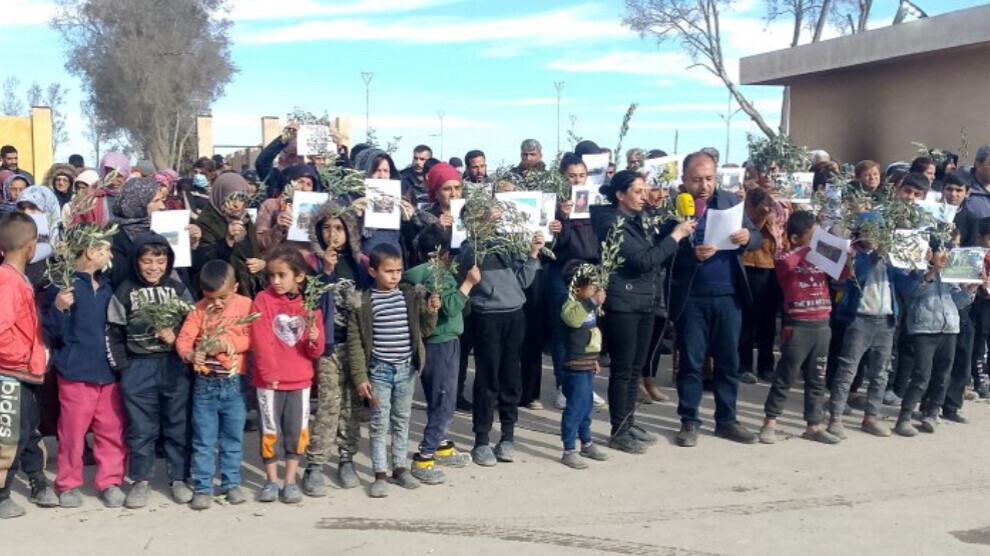
ANF
TABQA
Sunday, 19 January 2025, 17:14
People from Afrin-Shehba Canton made a press statement in Tabqa city where they took shelter after the invasion of their lands by the Turkish state and allied mercenaries.
The press statement on the occasion of the 7th anniversary of Afrin’s occupation was read by Îbrahîm Şêxo, a member of the Syria-Afrin Human Rights Organization, at the stadium where IDPs from Afrin and Shehba are sheltered.
Şêxo noted that since 2018, when the Turkish state and allied mercenaries occupied Afrin, 75 percent of the local population has been displaced. Since the first day, he added, the occupiers have committed numerous crimes in Afrin, including kidnapping, murder, theft, plunder, torture and kidnapping for ransom.
Îbrahîm Şêxo called on the United Nations and all international organizations to fulfill their duties and responsibilities to stop the crimes committed by the Turkish state and affiliated mercenaries in the occupied territories, and to put pressure on the invaders to leave Afrin and other occupied territories.
Şêxo further called for the perpetrators of crimes to be called to account and for the displaced people to be able to return home safely and honorably.
Îbrahîm Şêxo also called on the international community to put pressure on the occupiers so that the increasingly ongoing attacks on North-East Syria, mainly at the Tishrin Dam, Qereqozaq Bridge and Kobanê countryside, are halted.
Şêxo announced the balance sheet of the crimes committed by the occupiers in Afrin-Shehba Canton in 2024 as follows:
Kidnapping: 650 people, including 59 women and 10 children, were kidnapped.
Murder, assassination, suicide: 64 people, 7 of whom were women, were murdered, and 3 women committed suicide.
Torture and injury: 56 people, including 2 children, 8 women and 2 elderly people, were tortured and injured.
Tree cutting and burning: More than 10,360 trees were cut down, 597 hectares of land and more than 6,000 trees were burned down.
Demographic change (Ethnic cleansing): 15 settlements and a school building were built by the South Korean company JTS.
Property sales: The occupiers sold 16 properties they had confiscated.
Property confiscation: In the village of Kaxirê, the property of Kurdish residents was confiscated and forcibly handed over to Al-Amshad mercenaries as ransom.
Olive plunder: In all the villages of Afrin, olives and products were stolen by mercenary groups and those settled in the city. More than 3,500 olive trees in Qerzehîlê village and more than 700 olive trees in Qîbarê village were plundered.
Tribute collection: The most common practice imposed on the people of Afrin last year was extortion. In Meydana village of Rajo, 4,500 tins of olive oil were seized from 900 Kurdish families as tribute. In Gimrokê village of Mabata, 250 thousand dollars were taken from the people. In the villages in Shiye, 60 thousand dollars and in Qermitlik village, 70 thousand dollars were taken from the people by force.

KURDISTAN BY ANY OTHER NAMENegotiators zero in on potential deal to disarm Syria's last battleground
Jonathan Spicer, Tuvan Gumrukcu and Maya Gebeily
Sun, January 19, 2025

Member of Kurdish-led Syrian Democratic Forces (SDF) stands along a street in Hasakah
ISTANBUL/DAMASCUS (Reuters) - Negotiators are zeroing in on a potential deal to resolve one of the most explosive questions looming over Syria's future: the fate of Kurdish forces that the U.S. considers key allies against Islamic State but neighbouring Turkey regards as a national security threat.
Diplomatic and military negotiators from the United States, Turkey, Syria and the Kurdish-led Syrian Democratic Forces (SDF) are showing more flexibility and patience than their public statements suggest, a dozen sources told Reuters, including five directly involved in the intensive web of discussions in recent weeks.
This could set the stage for an accord in the coming months that would see some Kurdish fighters leave Syria's restive northeast and others brought under the authority of the new defense ministry, six of the sources said.
However, many thorny issues need to be resolved, they said. These include how to integrate the SDF alliance's well-armed and trained fighters into Syria's security framework and administer territory under their control, which includes key oil and wheat fields.
In an interview with Saudi Arabia's Asharq News channel on Tuesday, SDF commander Mazloum Abdi said the alliance's "basic demand" is for decentralised administration - a potential challenge to Syria's new leadership, which wants to bring all of the country back under the government's authority after ousting Bashar al-Assad last month.
Abdi indicated that the SDF has no intention of dissolving, saying it was open to linking with the defense ministry and operating according to its rules, but as "a military bloc".
Syria's new defense minister, Murhaf Abu Qasra, rejected that approach in an interview with Reuters on Sunday, saying the suggestion that the SDF remain one bloc "is not right."
The former rebels now in power in Damascus have said they want all armed groups to integrate into Syria's official forces, under a unified command. The SDF, when asked for comment, referred Reuters to its commander's interview.
How much autonomy Kurdish factions retain likely hinges on whether incoming U.S. president Donald Trump continues Washington's longtime support of its Kurdish allies, according to diplomats and officials on all sides.
Trump has not spoken publicly about his intentions, including his plans for some 2,000 U.S. troops stationed in Syria. A Trump representative did not comment.
Any deal also depends on whether Turkish President Tayyip Erdogan holds off on a threatened military offensive against the People's Protection Units (YPG), the Kurdish militia that spearheads the SDF alliance.
Ankara views them as an extension of the Kurdistan Workers Party (PKK), which has been waging an insurgency against the Turkish state since 1984 and is deemed a terrorist group by both Turkey and the U.S.
Turkish Foreign Minister Hakan Fidan said this month that Syria's new authorities "should be given an opportunity to ... end the occupation and terror the YPG created", but he did not say how long Ankara would wait for it to disarm before launching an incursion
A Turkish Foreign Ministry source said disarming armed groups and the departure of "foreign terrorist fighters" were essential for Syria's stability and territorial integrity, so the sooner this happens the better.
"We are voicing this expectation of ours in the strongest terms during our contacts with both the United States and the new administration in Damascus," the source said.
INTENSIVE TALKS
U.S. and Turkish officials have been holding "very intensive" discussions since rebels led by Hayat Tahrir al-Sham (HTS), a former al Qaeda affiliate, launched a lightning offensive from their northwestern stronghold that deposed Assad on Dec. 8, a senior U.S. diplomat told Reuters.
The two countries share a "common view of where things should end up", including a belief that all foreign fighters should exit Syrian territory, the diplomat said, noting Turkish negotiators "have a very high sense of urgency" to settle things.
However, the diplomat, who like some other sources requested anonymity to discuss sensitive negotiations, said the talks were "hugely complex" and would take time.
Parallel talks are taking place between the U.S. and both the SDF and HTS, Turkey and HTS, and the SDF and HTS, officials from all sides say.
Part of a stateless ethnic group straddling Iraq, Iran, Turkey, Armenia and Syria, Kurds had been among the few winners of the Syrian conflict, gaining control over Arab-majority areas as the U.S. partnered with them in the campaign against Islamic State. They now hold nearly a quarter of the country.
But Assad's fall has left Syrian Kurdish factions on the back foot, with Turkey-backed armed groups gaining ground in the northeast and the country's new rulers in Damascus friendly with Ankara.
Turkey, which provided direct support to some rebel groups against Assad, has emerged as one of the most influential power brokers in Syria since his fall. Like the U.S., it has designated HTS a terrorist group because of its al Qaeda past, but Ankara is believed to have significant sway over the group.
Officials on all sides worry that failure to reach a ceasefire and longer-term political accord in the northeast could destabilise Syria as it seeks to recover from a 13-year civil war that killed hundreds of thousands, displaced millions and drew in countries including Russia, Iran and Israel.
Dozens of people in northern Syria have been reported killed since December in clashes between the Kurdish-led SDF and Turkey's allies, and in cross-border Turkish airstrikes.
Failure to resolve the fate of Kurdish factions in Syria could also undermine nascent efforts to end the PKK's insurgency in Turkey.
The United Nations has warned of "dramatic consequences" for Syria and the region if a political solution is not found in the northeast.
POTENTIAL TRADE-OFFS
U.S. support for the SDF has been a source of tension with its NATO ally, Turkey.
Washington views the SDF as a key partner in countering Islamic State, which Secretary of State Antony Blinken has warned will try to use this period to re-establish capabilities in Syria. The SDF is still guarding tens of thousands of detainees linked to the group.
Erdogan said on Wednesday that Turkey has the power to "crush" all terrorists in Syria, including Islamic State and Kurdish militants.
Turkey wants the management of camps and prisons where Islamic State detainees are being held transferred to Syria's new rulers and has offered to help them. It has also demanded that the SDF expel all foreign fighters and senior PKK members from its territory and disarm the remaining members in a way it can verify.
Abdi, the SDF commander, has shown flexibility regarding some Turkish demands, telling Reuters last month that its foreign fighters, including PKK members, would leave Syria if Turkey agrees to a ceasefire.
The PKK said in a statement to Reuters on Thursday that it would agree to leave if the SDF maintains control of the northeast or a significant role in joint leadership.
Such assurances are unlikely to satisfy Ankara at a time when the SDF is "trying to stay alive and autonomous" in Syria, Omer Onhon, Turkey's last ambassador to Damascus, told Reuters.
In Ankara on Wednesday, Syrian Foreign Minister Asaad Hassan al-Shibani said the extensive U.S.-backed SDF presence was no longer justified, and the new administration would not allow Syrian land to be a source of threats to Turkey. Standing next to him, his Turkish counterpart, Fidan, said it was time to put anti-terror pledges into practice.
Abdi told Asharq News that he has met with Syria's de facto leader, Ahmed al-Sharaa, and the two sides agreed to set up a joint military committee to decide how the SDF would integrate with the defense ministry. He described the meeting with Sharaa, who heads HTS, as positive.
Abu Qasra, the defense minister, accused SDF leaders on Sunday of "procrastinating" on the issue, saying "consolidation of all areas under the new administration ... is a right of the Syrian state."
The new leadership believes that allowing SDF fighters to continue operating as a bloc would "risk destabilisation, including a coup", a ministry official told Reuters.
Abdi argued that a decentralised administration would not threaten Syria's unity, saying the SDF is not demanding the kind of federalism introduced in Iraq, where Kurds have their own regional government.
Some Syrian officials and diplomats say the SDF will likely need to relinquish control of significant territory and oil revenues, gained during the war, as part of any political settlement.
In return, Kurdish factions could be granted protections for their language and culture within a decentralised political structure, said Bassam al-Kuwatli, president of the small Syrian Liberal Party, which supports minority rights but is not involved in the talks.
A senior Syrian Kurdish source acknowledged that some such trade-offs would likely be needed but did not elaborate.
Abdi told Asharq News that the SDF was open to handing over responsibility for oil resources to the new administration, provided the wealth was distributed fairly to all provinces.
Washington has called for a "managed transition" of the SDF's role.
The U.S. diplomat said Assad's ouster opens the door for Washington to eventually consider withdrawing its troops from Syria, though much depends on whether trusted forces like its Kurdish allies remain engaged in efforts to counter any Islamic State resurgence.
Trump's return to the White House on Monday has raised hopes in Turkey of a favourable deal, given the rapport he established with Erdogan during his first term.
Trump has spoken approvingly about Erdogan's role in Syria, calling him a "very smart guy", and said Turkey would "hold the key" to what happens there.
"The Americans won't abandon (the SDF)," said Onhon, Turkey's former ambassador. "But the arrival of someone as unpredictable as Trump must worry them in a way too."
(Reporting by Jonathan Spicer in Istanbul, Tuvan Gumrukcu in Ankara and Maya Gebeily in Damascus; Addional reporting by Timour Azhari in Damascus, Suleiman Al-Khalidi in Amman, Tom Perry in Beirut, Ahmed Rasheed in Baghdad and Orhan Qereman in Qamishli, Syria; Editing by Alexandra Zavis)
US Central Command chief meets Syrian Kurdish SDF forcesBy: TII teamDate: January 17, 2025
The head of U.S. Central Command (CENTCOM), General Michael Kurilla (right) shakes hands with General Mazloum Abdi, the commander-in-chief of the Kurdish-led Syrian Democratic Forces (SDF) in Syrian Kurdistan (Rojava). Photo: SDF/XQAMISHLO,— The head of U.S. Central Command (CENTCOM), General Michael Kurilla, visited Syrian Kurdistan (Rojava) on Thursday, meeting with Kurdish-led Syrian Democratic Forces (SDF) and U.S. military commanders.The visit aimed to assess ongoing efforts to prevent the resurgence of the Islamic State (IS) group and to address the evolving security landscape in the region, according to a statement from CENTCOM.Kurilla toured the Al-Hol camp, a sprawling facility housing over 40,000 people, including families of suspected Islamic State fighters. Many of the residents are foreigners with ties to IS.CENTCOM warned that without significant international efforts to repatriate, rehabilitate, and reintegrate these individuals, the camp risks becoming a breeding ground for future IS militants.The SDF, backed by the United States, has been pivotal in combating IS since the group was driven from Syria in 2019. The forces manage multiple detention facilities holding approximately 9,000 IS detainees from over 50 countries.Despite these efforts, tensions in the region remain high. Turkey views the SDF’s main component, the People’s Protection Units (YPG), as an extension of the Kurdistan Workers’ Party (PKK), which both Turkey and the U.S. designate as a “terrorist organization”. Turkey has threatened military action against the SDF, raising concerns about escalating conflict.The SDF has rejected the allegations, denying any links to the PKK and accusing Turkey of using the claims as a pretext to expand its operations into Kurdish areas in northern Syria.The Syrian Observatory for Human Rights reported that fighting between the SDF and Turkey-backed Islamist groups has killed 401 people, mostly combatants, since December 12. Clashes have centered around Manbij and a key dam in northern Syria.Meanwhile, diplomatic talks continue. Earlier this month, the SDF met with Syria’s new authorities, expressing support for national unity. In a visit to Ankara, Syrian Foreign Minister Asaad al-Shaibani pledged to prevent Syrian territory from being used for threats against Turkey.SDF commander General Mazloum Abdi also held discussions with Massoud Barzani, leader of Iraq’s Kurdistan Democratic Party, emphasizing the need for Kurdish unity and collaboration with Syria’s leadership, according to Barzani’s office.The United States maintains a military presence in the Kurdish region in northern Syria as part of the international coalition against IS, underscoring the region’s strategic importance. However, CENTCOM reiterated that resolving the challenges posed by IS requires a coordinated global response.(Credit: AFP)Copyright © 2025 The Insight International. All rights reserved

Massoud Barzani sends envoy to Syria’s Kurdish region
By: TII team
Date: January 13, 2025

Hamid Darbandi (right), the heads the Rojava file at Massoud Barzani’s office, 2024. Photo: The Insight International/Barzani;s Press office/X
HEWLÊR-Erbil,— The leader of the Kurdistan Democratic Party (KDP) in Iraq’s Kurdistan region, Massoud Barzani, has sent a representative to Syria’s northern Kurdish region (Rojava) to meet with Mazloum Abdi, head of the Syrian Democratic Forces (SDF), and members of the Kurdish National Council (ENKS), sources said Monday.
The visit by Hamid Darbandi, who heads the Rojava file at Barzani’s office, comes amid ongoing political shifts in the region.
Darbandi, met with General Mazloum Abdi, the SDF’s commander-in-chief, in the northeastern Syrian city of Hasaka, according to a statement released by the SDF.
The statement noted that Darbandi delivered a message from Barzani emphasizing the urgency of Kurdish unity in addressing Syria’s ongoing challenges.

General Mazloum Abdi Kobani (right), commander-in-chief of the Kurdish-led Syrian Democratic Forces (SDF), alongside Massoud Barzani’s representative, Hamid Darbandi, in Hasaka, Syrian Kurdistan, Rojava, on January 13, 2025. Photo: SDF Press.
General Abdi expressed his appreciation for President Barzani’s message and support, emphasizing the need for collective efforts among all Kurdish parties to ensure stability and protect the interests of the Kurdish people, according to the statement.
The ENKS is a Kurdish opposition group in Syria that opposes the autonomous administration in the northeast, particularly the SDF and its political wing, the Democratic Union Party (PYD).
Established by Barzani and the KDP in October 2011, the ENKS receives backing from Turkey. However, the group has little influence or popular support on the ground in Syrian Kurdistan.
The ENKS and the SDF, despite their differences, have engaged in talks in recent months to explore ways to unify the Kurdish political scene in Syria. Last month, Abdi held a meeting with a delegation from the ENKS, with representatives from the US-led coalition also in attendance, to discuss how to move forward with Kurdish unity in the region.
The situation in Syria has undergone a dramatic shift, as Hay’at Tahrir al-Sham (HTS), a powerful Islamist rebel group, has successfully toppled the regime of Bashar al-Assad and assumed control of the country. HTS launched a major offensive in late November, culminating in the overthrow of Assad’s government and fundamentally altering the balance of power in Syria.
As the Syrian government’s control continues to erode, the PYNK, a coalition of 24 Kurdish parties aligned with the PYD, reportedly has expressed its willingness to resume talks with the ENKS.
The PYNK has a strong presence in the Democratic Autonomous Administration of North and East Syria (AANES) and is seeking to build a more cohesive Kurdish front.
Barzani, known for his close ties to the Turkish government, stated in March 2016 that any support for the Kurdish PYD party is equivalent to supporting the PKK, declaring, “They are exactly the same.”
The Barzani-led KDP has also maintained a blockade on the border between Iraqi Kurdistan and Rojava for nearly a decade, a move seen as an effort to appease Turkey’s concerns over Kurdish autonomy in Syria.
Copyright © 2025 The Insight International. All rights reserved
Mazlum Abdi on meeting with Barzani: We will support one another
SDF Commander-in-Chief Mazlum Abdi commented on his meeting with Masoud Barzani in Southern Kurdistan (Northern Iraq) on January 16, which highlighted the need to preserve Kurdish unity and stability in the region.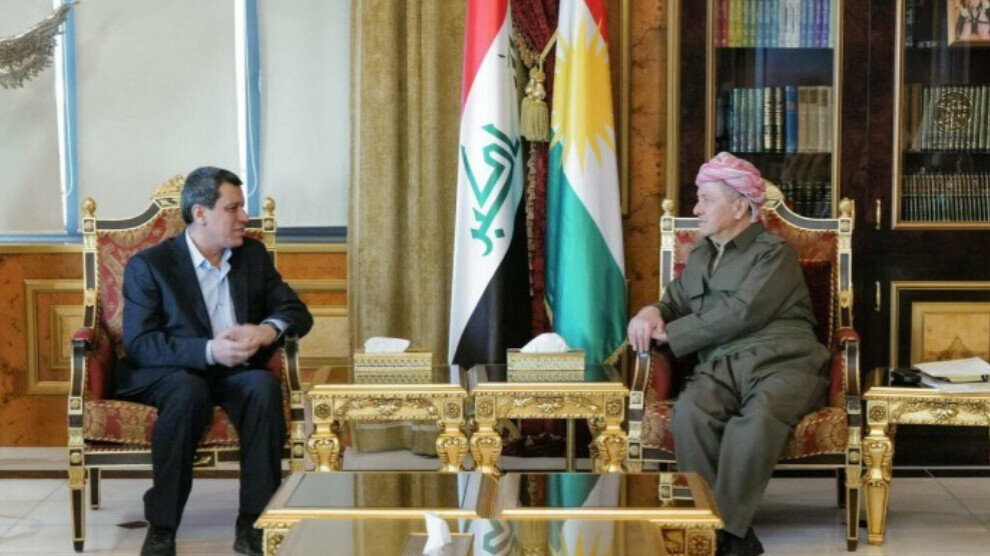 ANFNEWS DESKFriday, 17 January 2025, 14:39Mazlum Abdi, the Commander-in-Chief of the Syrian Democratic Forces (SDF), who has frequently called for the establishment of Kurdish national unity against Turkey's ongoing attacks on Northern and Eastern Syria, held meetings with various Kurdish groups in Hewlêr (Erbil) in the Kurdistan Region of Iraq. The SDF Commander General met with Masoud Barzani, the leader of the Kurdistan Democratic Party (KDP), on Thursday during his visit to Hewlêr.In a statement on his social media account about his meeting with KDP President Massoud Barzani in Hewlêr, Mazlum Abdi said: “I was pleased to meet with President Massoud Barzani. We discussed the process of change in Syria.”The SDF Commander-in-Chief stated: “We agreed that the Kurds in Syria must have a common stand and that dialogue with Damascus must protect the rights of the Kurdish people in a peaceful way. We also emphasized that it is the duty of all of us to preserve Kurdish unity and stability in the region. We will support one another.”
ANFNEWS DESKFriday, 17 January 2025, 14:39Mazlum Abdi, the Commander-in-Chief of the Syrian Democratic Forces (SDF), who has frequently called for the establishment of Kurdish national unity against Turkey's ongoing attacks on Northern and Eastern Syria, held meetings with various Kurdish groups in Hewlêr (Erbil) in the Kurdistan Region of Iraq. The SDF Commander General met with Masoud Barzani, the leader of the Kurdistan Democratic Party (KDP), on Thursday during his visit to Hewlêr.In a statement on his social media account about his meeting with KDP President Massoud Barzani in Hewlêr, Mazlum Abdi said: “I was pleased to meet with President Massoud Barzani. We discussed the process of change in Syria.”The SDF Commander-in-Chief stated: “We agreed that the Kurds in Syria must have a common stand and that dialogue with Damascus must protect the rights of the Kurdish people in a peaceful way. We also emphasized that it is the duty of all of us to preserve Kurdish unity and stability in the region. We will support one another.”


